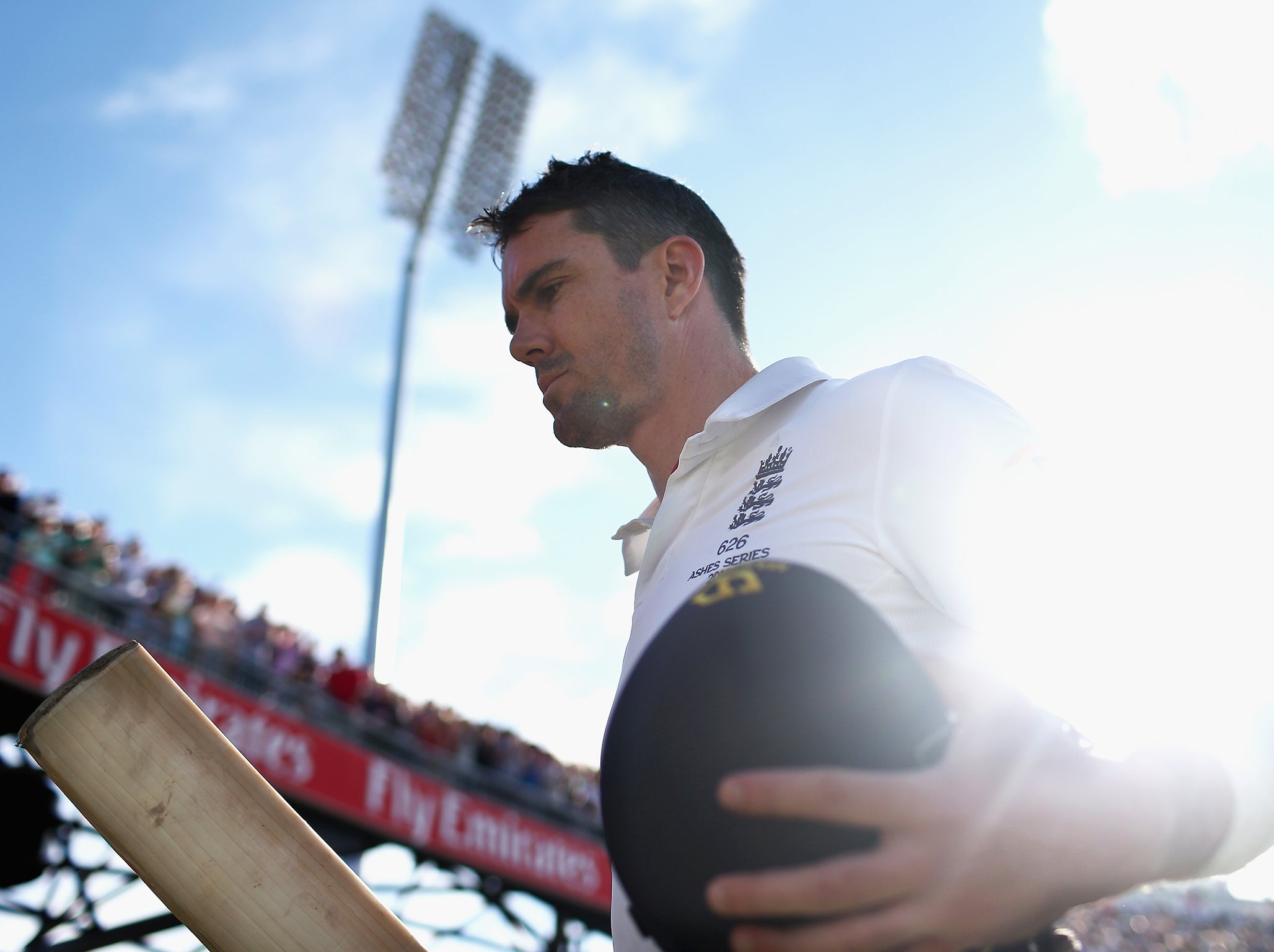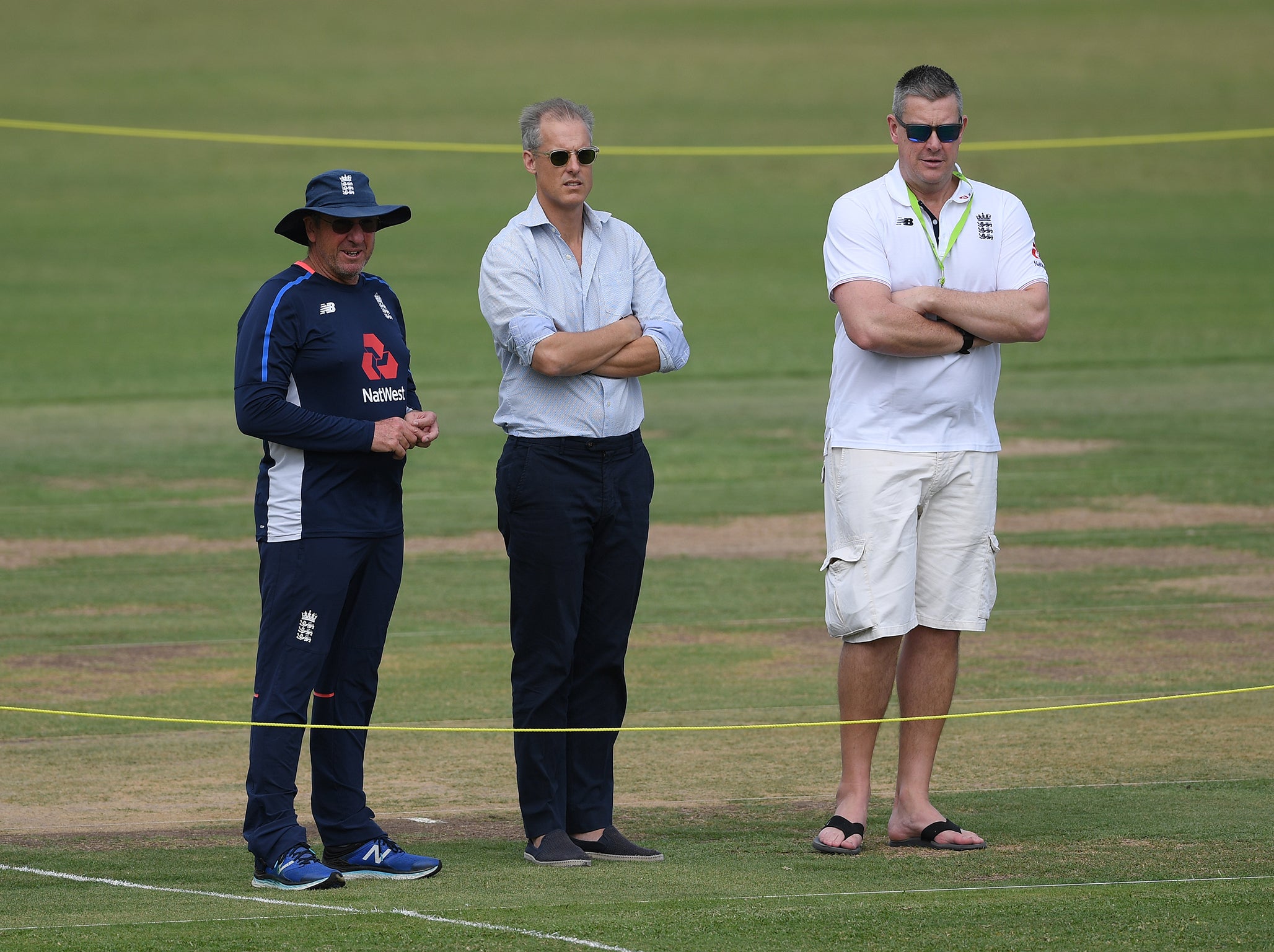England are desperate to ‘create heroes’ – but should individual fulfillment come before the needs of the team?
If it occasionally looks like England’s batsmen are playing a game entirely divorced from the match context, then perhaps it’s because they think they’re going to be the one who drags England out of this. They all want to be the hero

Your support helps us to tell the story
From reproductive rights to climate change to Big Tech, The Independent is on the ground when the story is developing. Whether it's investigating the financials of Elon Musk's pro-Trump PAC or producing our latest documentary, 'The A Word', which shines a light on the American women fighting for reproductive rights, we know how important it is to parse out the facts from the messaging.
At such a critical moment in US history, we need reporters on the ground. Your donation allows us to keep sending journalists to speak to both sides of the story.
The Independent is trusted by Americans across the entire political spectrum. And unlike many other quality news outlets, we choose not to lock Americans out of our reporting and analysis with paywalls. We believe quality journalism should be available to everyone, paid for by those who can afford it.
Your support makes all the difference.Last month, the England and Wales Cricket Board launched its new strategy document for the 2020-24 period, and if your eyes are already beginning to glaze over a touch, then be thankful you didn’t have to read it. For in amongst the dry, well-meaning stuff like increasing youth participation, investing in club facilities and “driving governance reform” was a rather more telling aspiration: one that may just illuminate the recent batting catastrophes in the Caribbean.
The job of the England team, according to the document, is to “create heroes”, and “connect them with a new generation of fans”. It is noted that “young people are inspired by individual heroes performing and entertaining at the highest level”. It points out that individual athletes often have a broader appeal than the team they play for. Thus, English cricket must strive to lionise and market its individual stars like Jos Buttler, whose picture adorns the cover of the glossy brochure, leaping in Herculean triumph.
Of course, cricket has always been framed as an individual game with a team sport. But importantly, it was that way round: the one-on-one battle always took place within the context of a larger war. Now, according to the blueprint for the future of English cricket, individual fulfilment is no longer an auxiliary to a broader strategy; it is the strategy. “Heroes will be given the best platform to develop their talent,” the ECB promise. In all, the word “hero” appears 12 times in the text. “Winning”, by contrast, appears three times.
So what does all this have to do batting collapses? Well, one of the striking things about watching England over the last fortnight has been the sheer incongruity of so many of their dismissals. Moeen Ali coming in at 48-5 in Barbados and hooking his first ball to long leg. Joe Root steering Roston Chase innocuously to slip. Jonny Bairstow going for a big drive in Antigua when England were trying to dig in for the long haul. (Nor should we imagine that individual expression necessarily results in reckless attacking batting: witness Rory Burns retreating into his shell during the second innings in Barbados and getting bowled off the last ball before lunch.)
And, if it occasionally looked like England’s batsmen are playing a game entirely divorced from the match context, then perhaps it’s because on some level, they’ve convinced themselves they are the context. They think they’re going to be the one who drags England out of this. They all want to be the hero.
Often, it works handsomely. Sam Curran’s frequent, momentum-shifting rescue efforts down the order against India probably won England that series. But decisive Test innings aren’t often played on the charge. Think about some of the best England innings of the last 18 months: Ben Stokes’s 112 against South Africa in 2017, Dawid Malan’s 140 at Perth, Joe Root’s 124 in Kandy, Buttler’s rearguard 106 at Trent Bridge, Alastair Cook’s farewell century at The Oval, Ben Foakes’s 107 in Galle. All of them contained crunching boundaries. They may have begun or ended briskly. But they were defined, above all, by judgement, humility, tempo: innings that respected the situation and flowed smoothly into it. Unless you’re a peerless genius like Virender Sehwag or Kevin Pietersen, it’s the only reliable method of scoring Test centuries.
This is a golden age of Test bowling. Virtually every attack in the world contains multiple threats. They don’t smash open like a pinata. You have to bend them until they break: hour by hour, session by session. You have to work in pairs: sharing insights, rotating the strike. It’s incredible, for example, how little England’s batsmen seem to talk to each other in between overs. A little word of encouragement, a punch of the gloves, sometimes not even that. But then, when you’re the hero, who needs the other guy?
We need to be quite precise about this. This has nothing to do with unity or team spirit. England’s has been commendably excellent for some years now. And off the field, there’s no shortage of discussion or support, from team meetings to exhaustive opposition analysis to the bowler-batsman feedback sessions that have been instituted after net practice. But it’s hard to escape the sense that all this is ultimately being placed in the service of a larger goal. Under Root’s captaincy, the job of the collective is to empower the individual. And the best way of serving the collective is to back yourself, to be yourself, to express yourself. We have reached a point, essentially, where the England team is an acquiescent vehicle for individual stardom.
This is a process that has been happening for quite some time. To trace its origins, you need to go back to the slow unravelling of the England team in the 2012-2015 period. As the Andrew Strauss/Andy Flower axis gradually evaporated, so did the fierce and unshakeable focus on collective ethic, shared values, individuals submitting their urges to the greater good. “The team is not a hire car,” was the motto of that side. But amid the triple trauma of Ashes whitewash, Kevin Pietersen’s sacking and World Cup embarrassment, it became clear that the tight strictures of the Flower era had exhausted their purpose. England needed to be let off the leash.
By the time Strauss returned as an administrator in 2015, he was ready to begin the revolution. The good-cop-good-cop duo of Trevor Bayliss and Paul Farbrace was hired to unfetter talent rather than cosset it. The white-ball side was entirely rebooted under the fearless Eoin Morgan. Players would finally be encouraged to go abroad and enrich themselves in the IPL. Results, particularly in the Test arena, fluctuated wildly. Almost four years into the Bayliss-Farbrace era, England have still never gone more than three games without a defeat. But for the most part, it’s been great television.

Behind the scenes, meanwhile, the subliminal message has been clear. ECB chief executive Tom Harrison arrived from the media giant IMG, a world of market shares and television ratings, and made it clear from the very start that the job of the England team was to provide spectacle, characters, thrills. “Joe Root and Eoin Morgan understand their responsibility to be playing exciting cricket for future generations to connect with,” he said. “You’re more likely to be forgiven a bad day if you’re doing everything to try to win a game, as opposed to not trying to lose it.”
Now, as of last month, we have it in writing: “Heroes will be given the best platform to develop their talent.” English cricket must “create and celebrate the heroes at the pinnacle of the elite game”. “We need someone to be a bit of a hero with the bat,” said Stuart Broad ahead of the third day’s play at Antigua. “We’ve got the talent for someone to play one of those knocks that goes down in history. You can see a Bairstow, a Stokes, a Buttler lighting this place up for a quick hundred.” As England crumbled to 132 all out in a maelstrom of misplaced machismo, the thought struck that a couple of fifties and few 30s might have done the job just as well.
Not that there seems to be much appetite with the England camp for a change of course, even after two crushing defeats. After all, part of being a hero is working things out for yourself. “The responsibility is down to the individual,” Root said at Antigua when asked about England’s frequent collapses. “I can’t bat for 11 guys.”

Bayliss, meanwhile, let out half a snort when asked whether England could benefit from a more collegiate approach, a little more basic leadership at its centre. “Well, I think every one of you guys writes differently,” he said, scanning the room of journalists. “Should you all write the same? Each of them as individuals has got to work out what is the best approach for them. What works for someone doesn’t necessarily work for someone else.”
Bayliss will be gone by the end of September, and should England fail to regain the Ashes there will certainly be a clamour for new director of cricket Ashley Giles to replace him with a more disciplined coach. Still, the overall direction of travel seems fairly well set. After all, English cricket’s cult of the hero runs deeper than any one coach or captain or player or series. It’s been written into the playbook, packaged and marketed and sold. And if we have to watch them lose a few Tests along the way, then perhaps that’s just the price of doing business. After all, we get the heroes we deserve.
Join our commenting forum
Join thought-provoking conversations, follow other Independent readers and see their replies
Comments